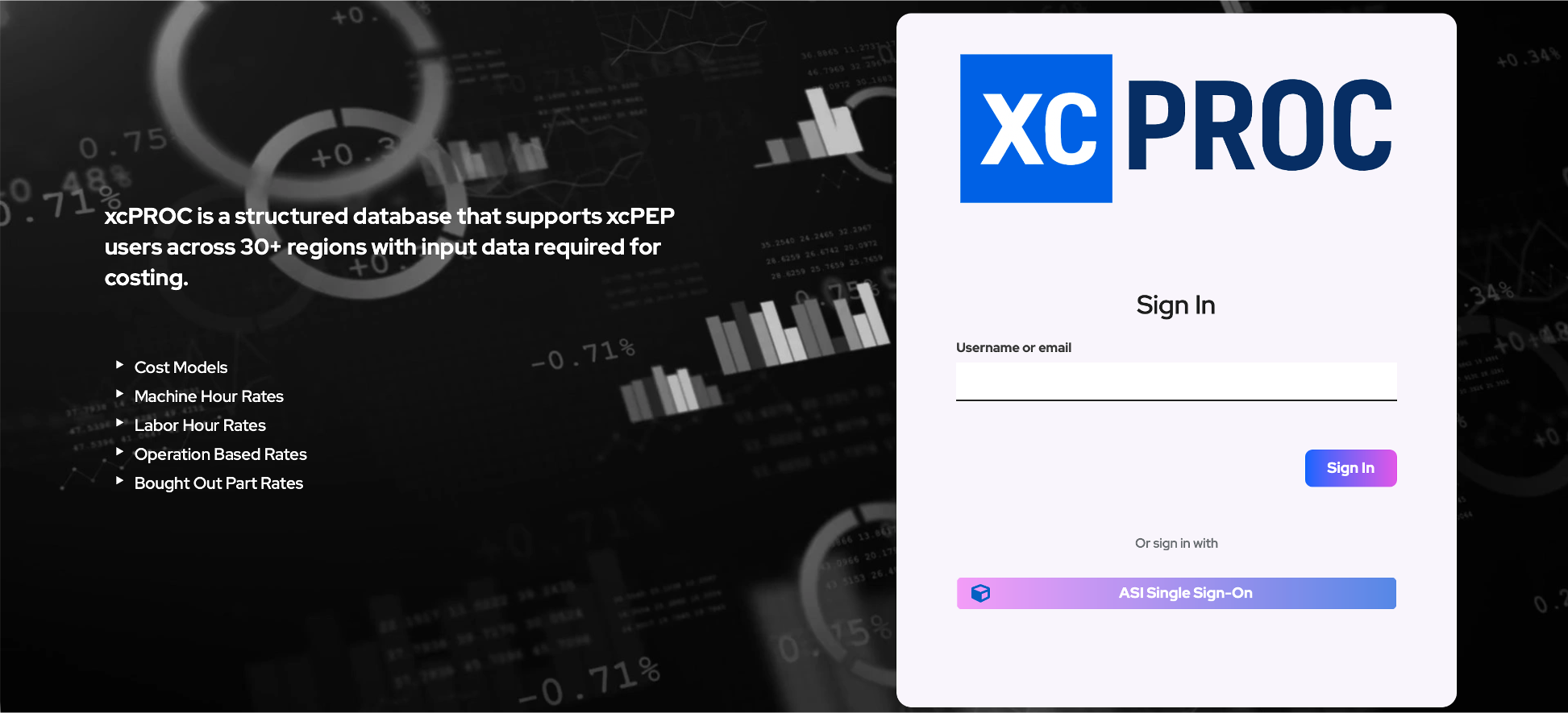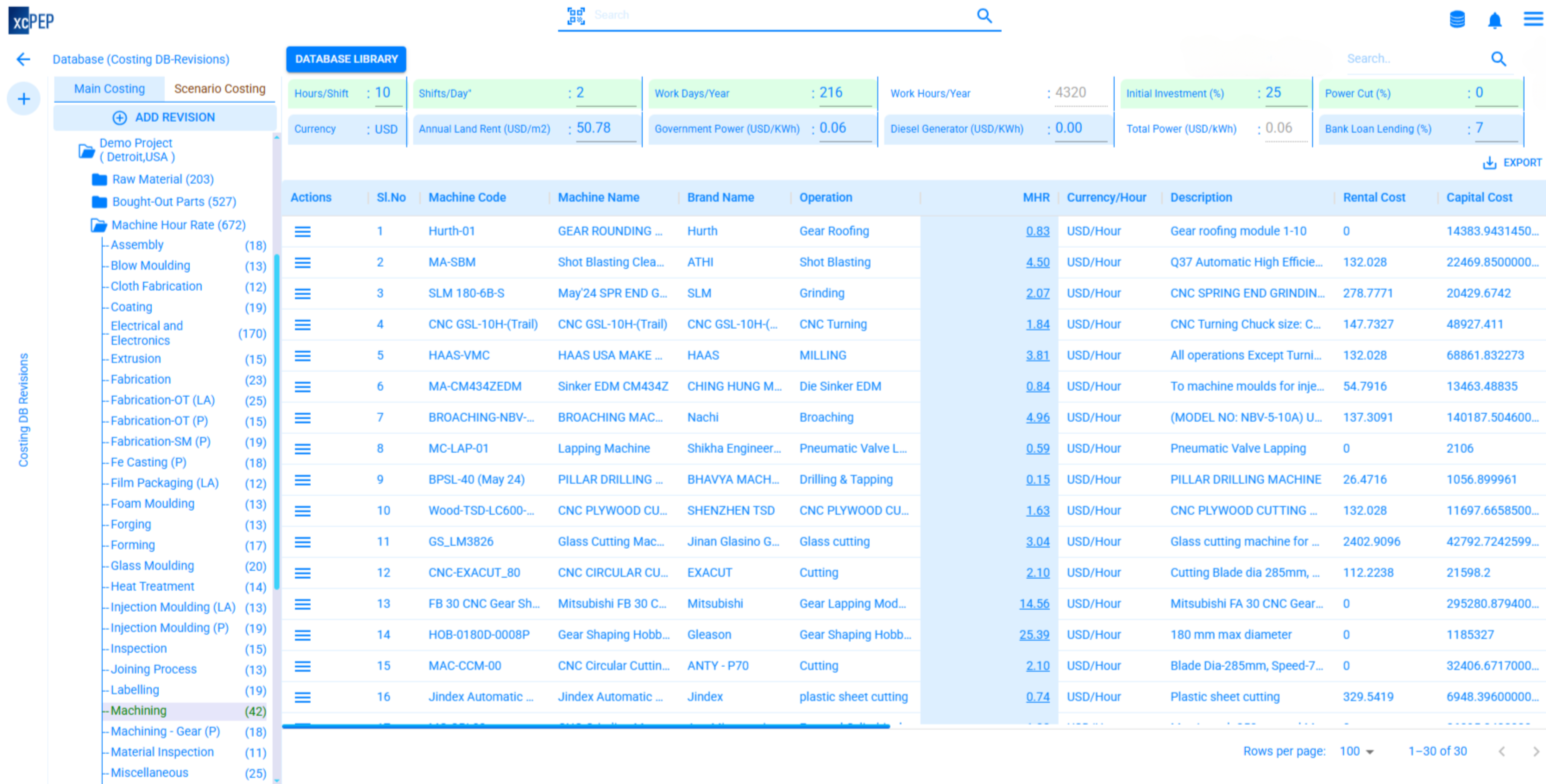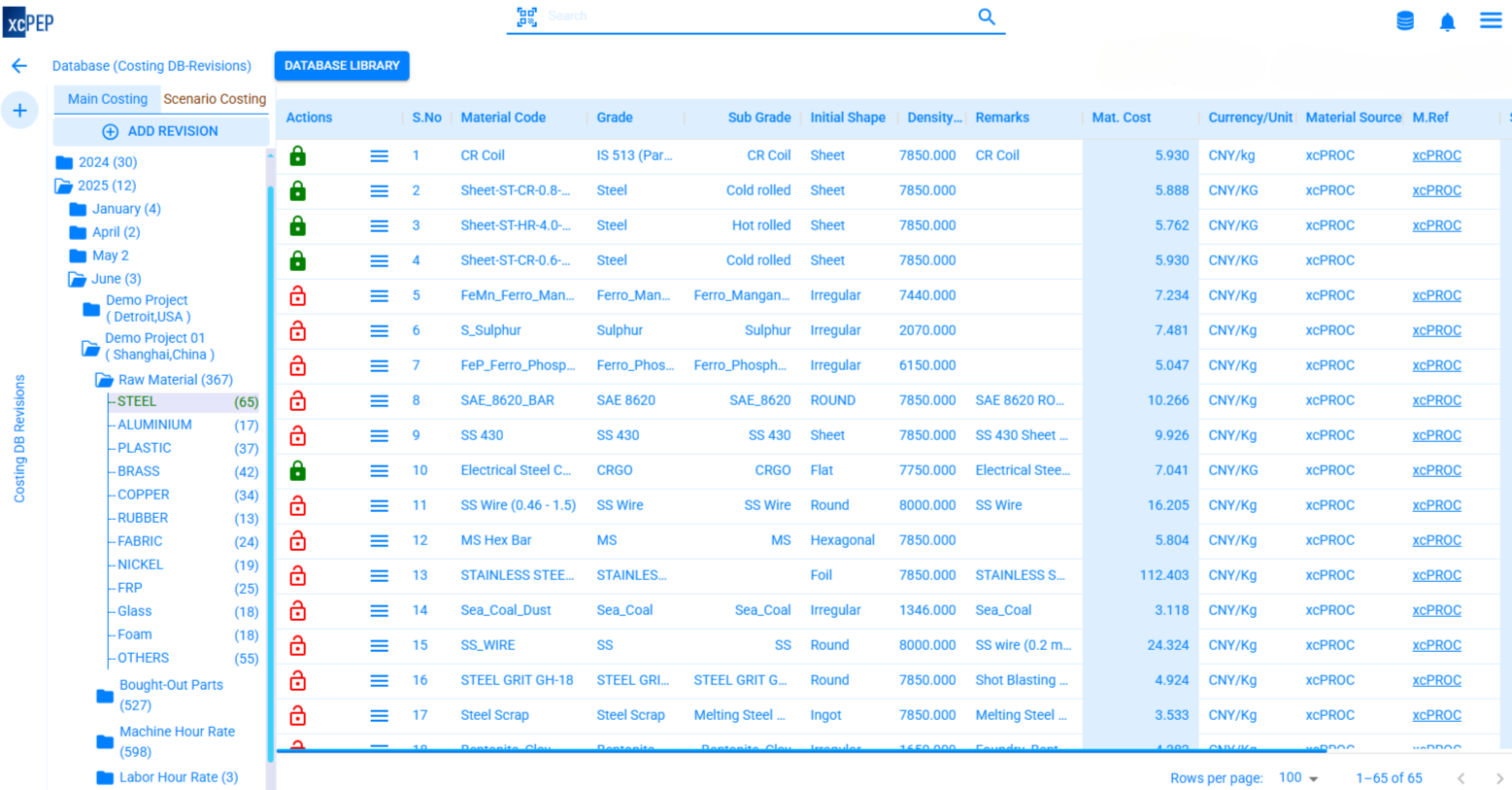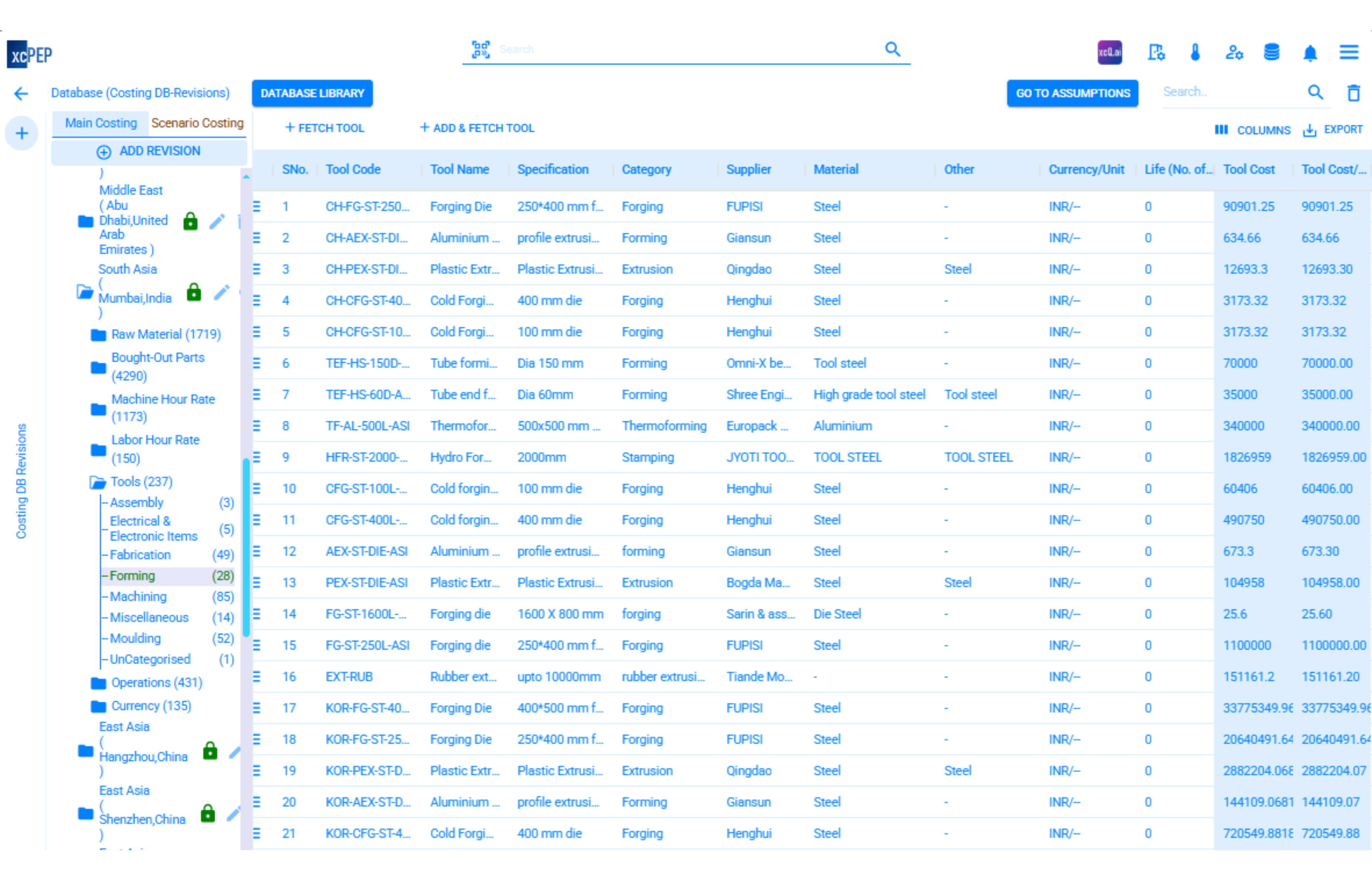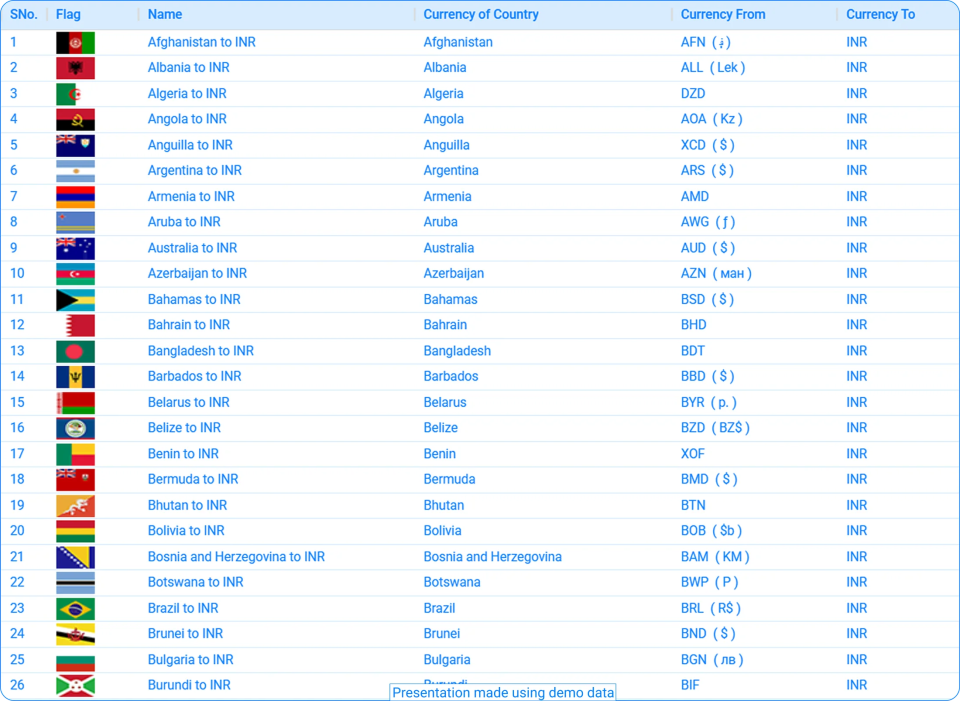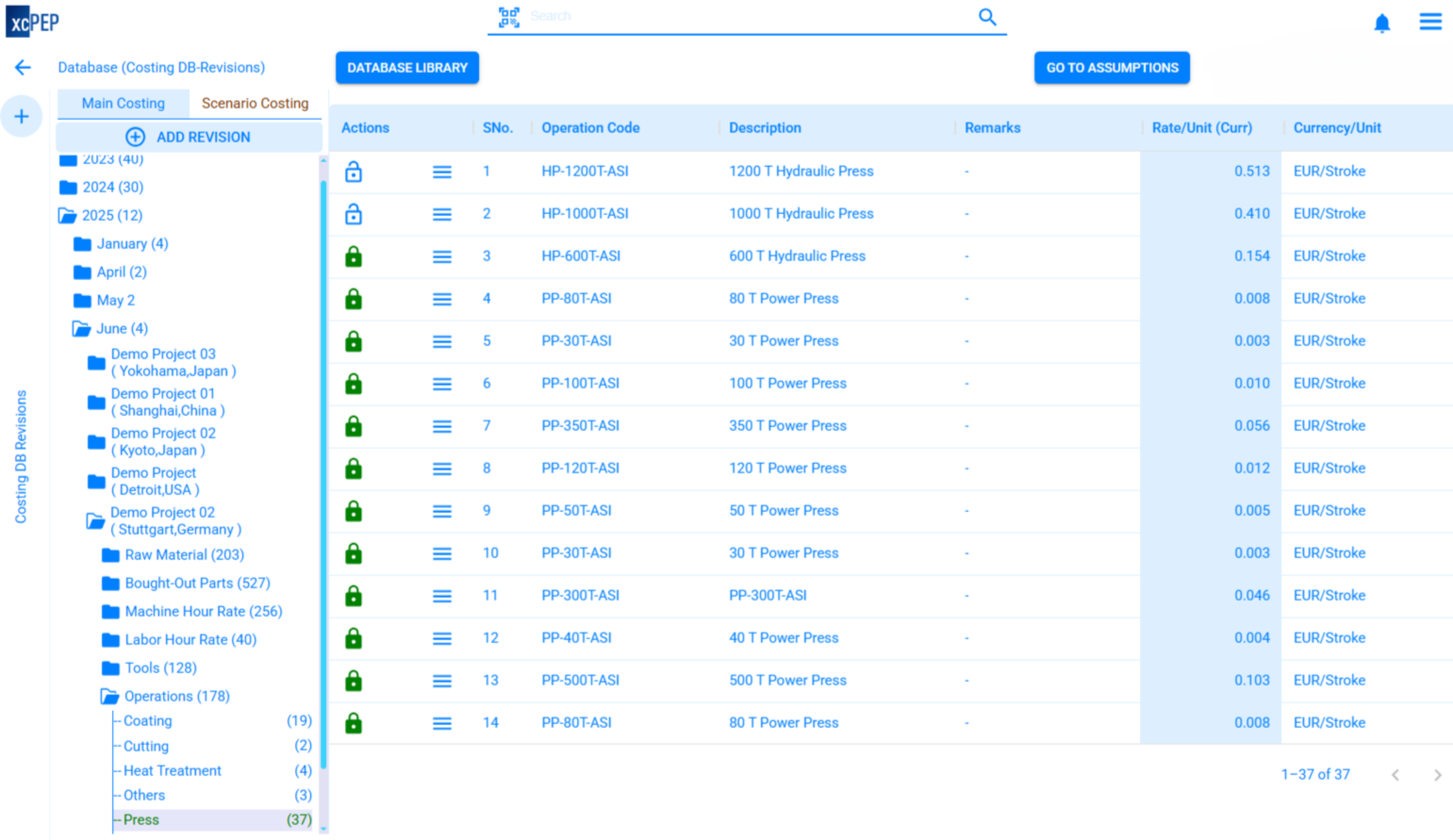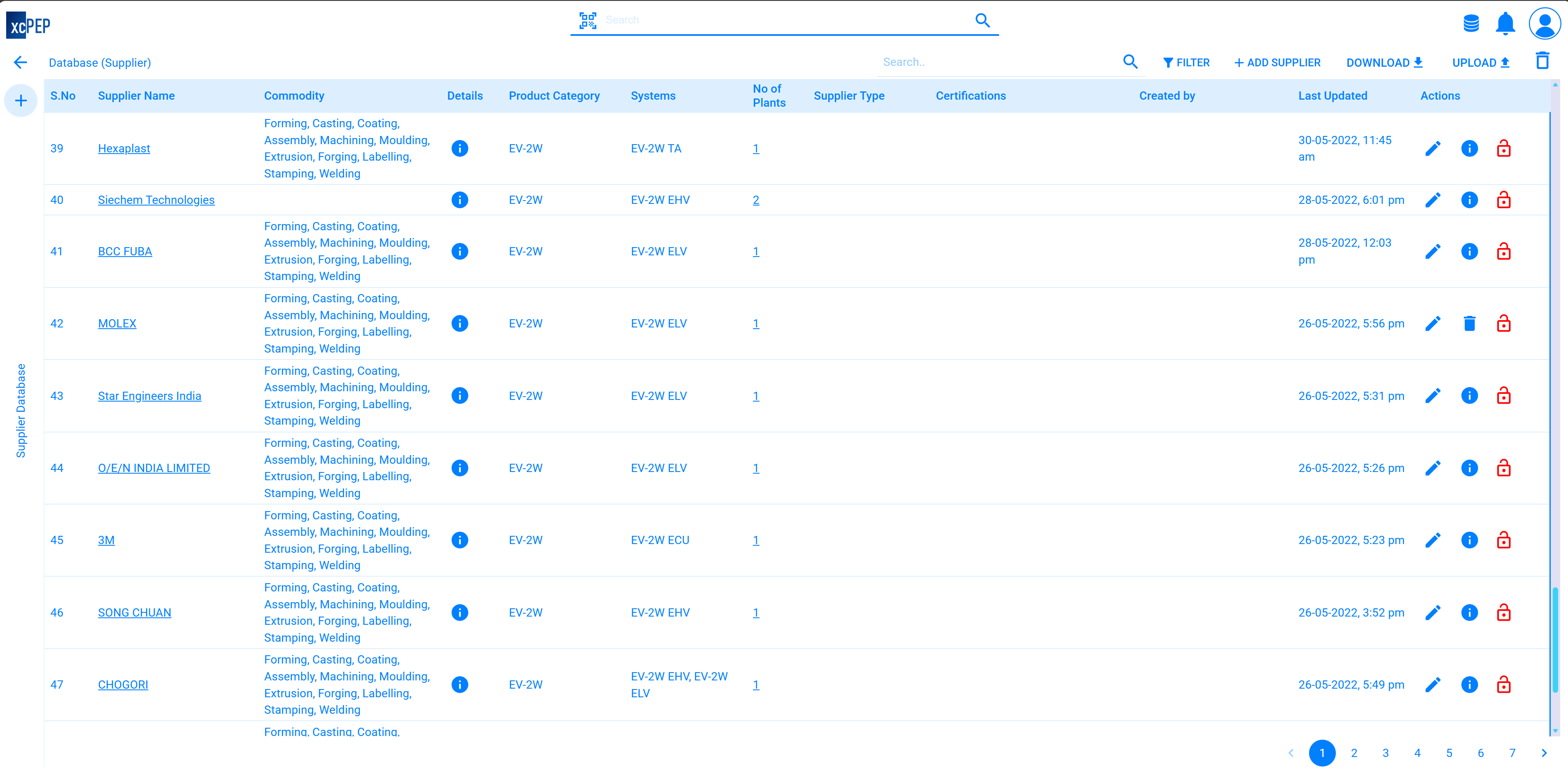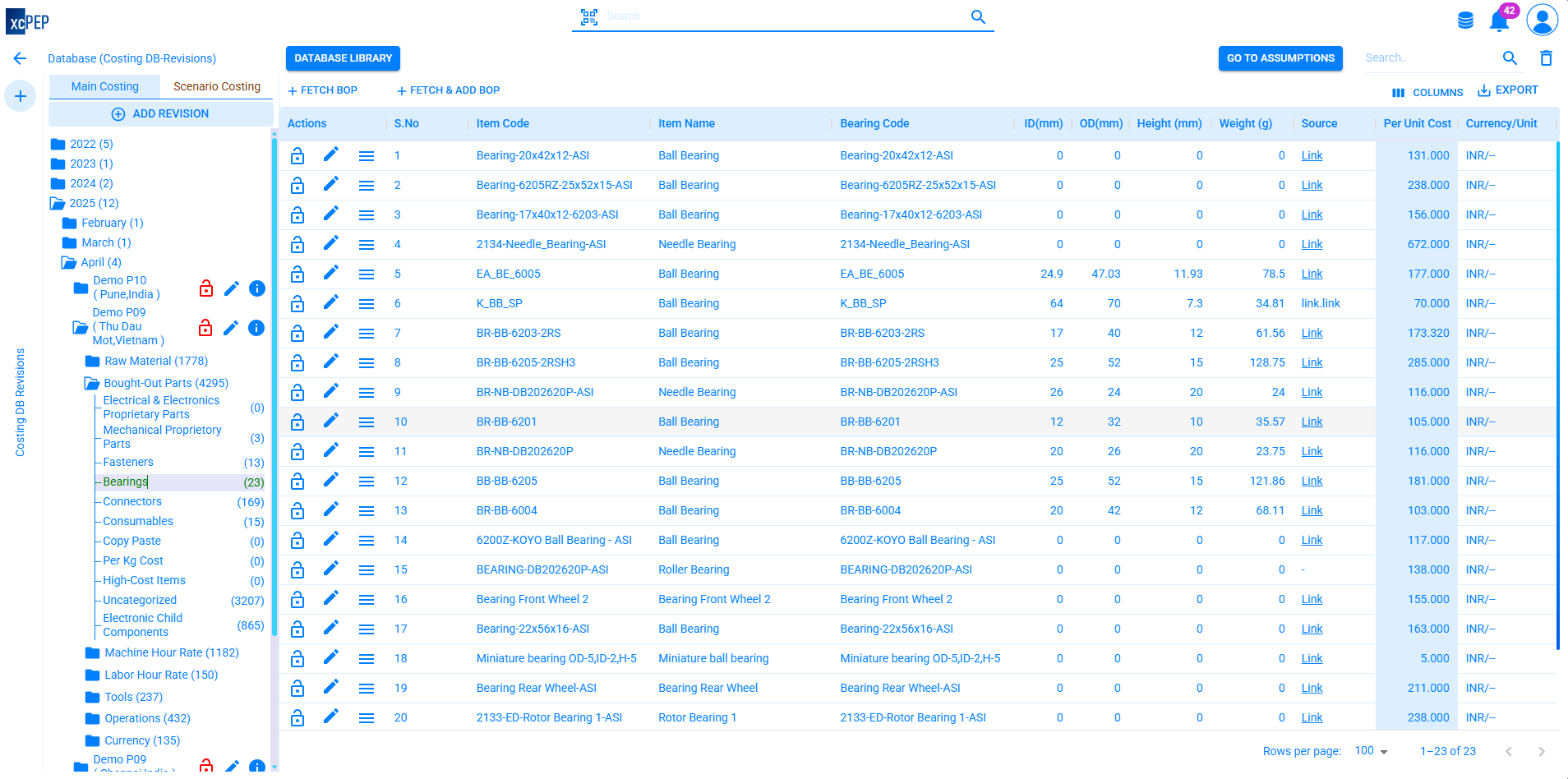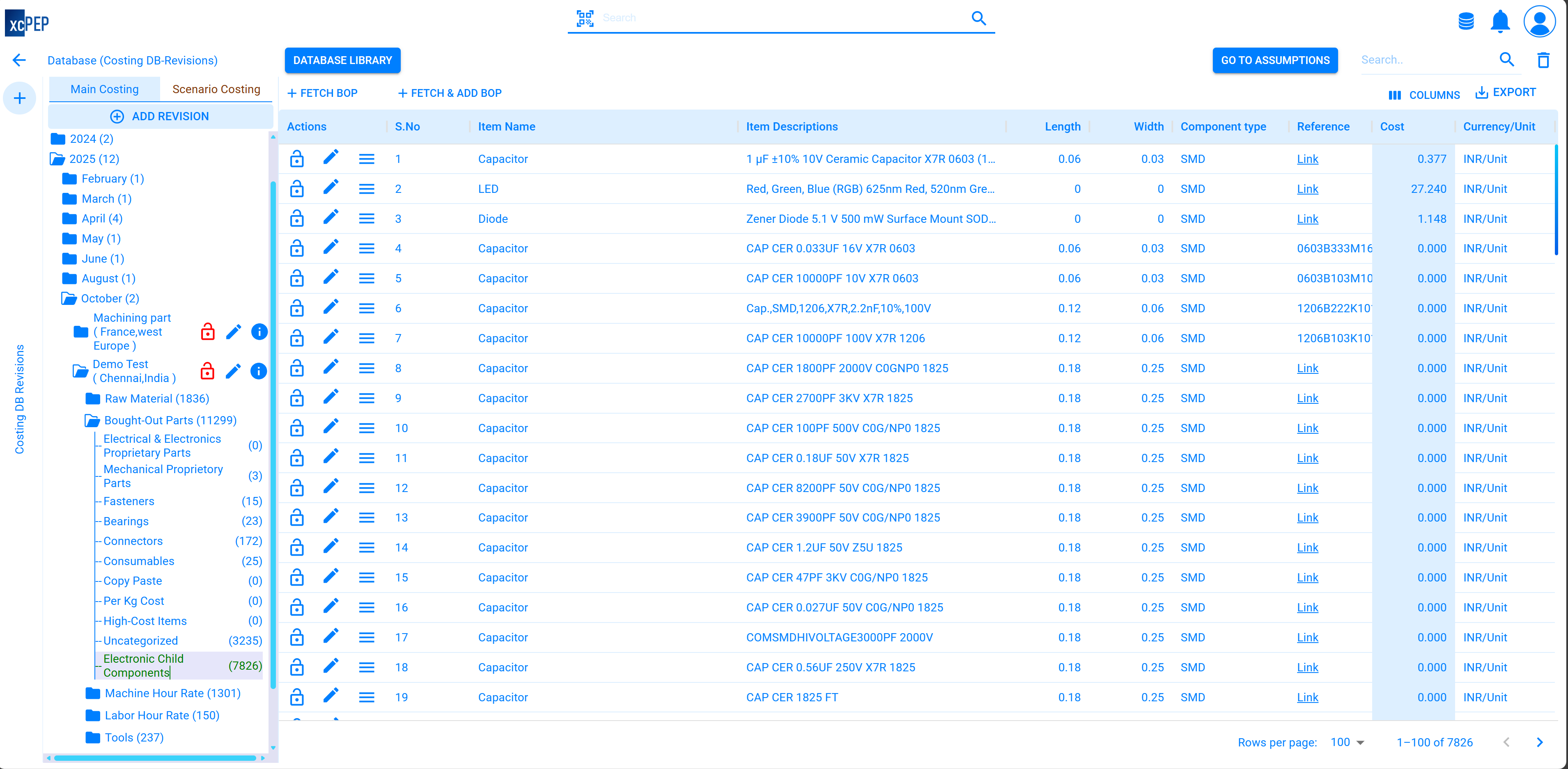xcPROC is the centralized database engine powering xcPEP. Built entirely by xcPROC data research team, each database is meticulously curated to be city-specific and time-specific.
-
Cost Models
Structured models for manufacturing logic, not static averages.
-
Machine Hour Rates
Precise MHR calculations based on equipment, utilities, and more.
-
Labor Hour Rates
Region-specific wage data for skilled, semi-skilled, and unskilled labor.
-
Operation Based Rates
Granular cost data for standard manufacturing processes.
-
Bought Out Part Rates
Curated pricing for standard components, fasteners, and materials.
